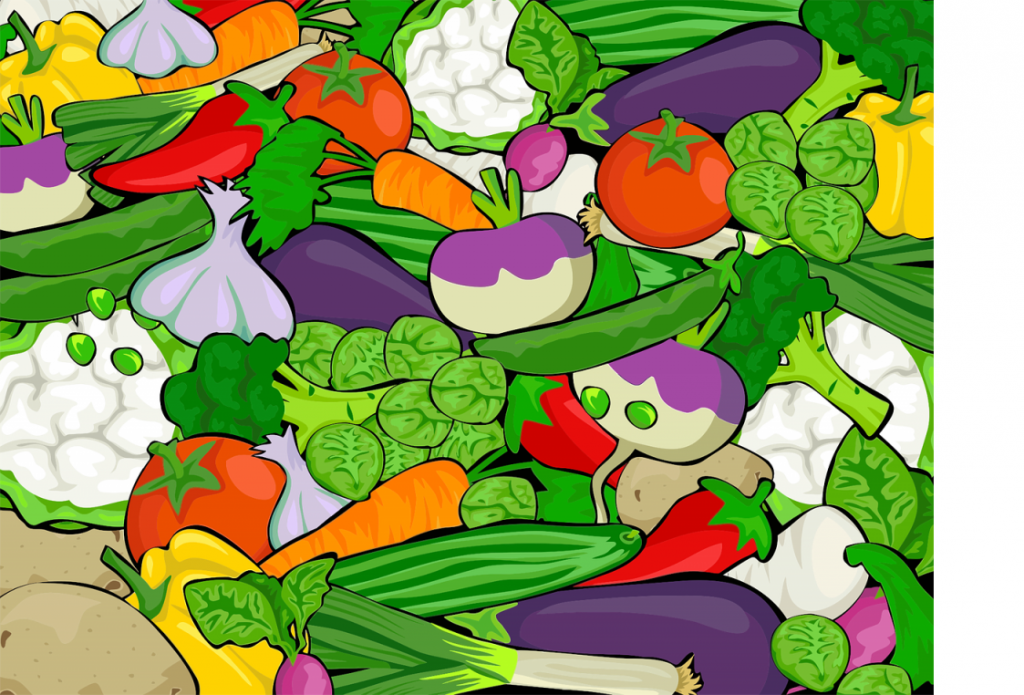With Christmas just around the corner, this is light-hearted post about brussel sprouts, why you either love ’em or hate ’em, and some fun ways to get kids to try ’em.
Why do some people hate ’em?
To some people, brussel sprouts taste bitter. They taste bitter because of a genetic variation, which means that to some people brussel sprouts taste bitter and to others they don’t.
Bitter broccoli and brussel sprouts
Some plants contain glucosinolates, which are broken down into isothiocyanates. Isothiocyanate compounds contain sulphur, providing the bitter taste. The bitter taste is the plant’s way of protecting itself, to stop it from getting eaten. This group of compounds are called isothiocyanates. (Check out this website for more on the chemistry of sprouts and isothiocyanates: https://www.compoundchem.com/2014/12/04/brusselssprouts/)
Isothiocyanates, PTC and PROP
The presence of isothiocyanates explains the bitter, and often pungent, taste of vegetables such as bok choy, broccoli, cabbage, cauliflower, kale, wasabi, horseradish, mustard, radish, Brussel sprouts and watercress (although less bitter-tasting Brussel sprouts are now swamping supermarkets, bred to contain fewer isothiocyanates.)
Researchers first discovered these compounds’ bitter-tasting properties completely by accident. In 1931, scientists were working with another compound in this family, phenylthiocarbamide, or PTC for short. Some PTC was spilt in the lab and some of the researchers complained of a bitter taste – a taste, it turned out, caused by PTC particles in the air. The lead researcher, Arthur Fox, couldn’t taste it himself. Curious, he set out to investigate this variation in people’s palates.
Bitter taste gene
Everyone inherits two copies of a taste gene called TAS2R38, and there are two variants of this gene: AVI and PAV. People who inherit two copies of the AVI variant aren’t sensitive to bitter tastes from certain chemical compounds.
Supertasters
While people who inherit copies of the AVI variant of the taste gene aren’t sensitive to the bitter taste of PROP, PTC and the sulphur compounds in foods, those with one copy of AVI and one of PAV are. And those with two copies of PAV can really taste these bitter compounds! They are sometimes referred to as “supertasters”.

Researchers from the University of Kentucky School of Medicine showed that “supertasters”, people who carry two copies of PAV, tend to like vegetables less and eat fewer of them (https://newsroom.heart.org/news/sensitivity-to-bitter-tastes-may-be-why-some-people-eat-fewer-vegetables).
Isothiocyanates and fussy or picky eating
PTC, PROP and the isothiocyanates have made news headlines before, because their discovery, and the genetic link, seemed to explain picky and selective eating. But while the University of Kentucky researchers did show that adult supertasters eat fewer vegetables than their non-tasting counterparts, other researchers have found that not all picky and selective eaters are supertasters, so we think that environmental factors also play a big part in our food preferences1.)
How to get a picky toddler to eat brussel sprouts this Christmas
A review conducted in 2017 of all the research into how babies and young children learn to like food found four main factors that determine how children learn to like or accept new foods2. The four main factors are:
1. Familiarity with a food
How familiar a child is with a kind of food means how often he has been exposed to that food, regardless of whether or not he has actually eaten it. This means that just seeing the food on the table or being eaten by others has some effect on a child’s liking of it.
The effect of exposure is powerful. It even works just by having the food in sight on the table3. Just seeing pictures of unfamiliar foods can increase a child’s willingness to try new food4. So maybe you could read a brussel sprout story or do some brussel sprout colouring.
2. Watching and copying role models
Come on, you’ve got to join in! Children react to their role models’ experience and response to a particular food. Role models are mostly parents and other adults involved in mealtimes but can also be siblings and other children. If everyone else is joining in, without pulling faces, there is more chance that your toddler will too.
3. The consequences of exposure to new foods
These consequences can be the child’s – such as being sick or vomiting after a food – but more often for young children, the responses are those of other people around him. Young children are masters at picking up cues about whether to try a new food or not by judging the facial expressions of adults and other children. See below for the gas-forming effects of sprouts!
4. Categorisation of foods
Categorisation of food refers to the concept of whether or not a food sits in an expected category, or even whether a new food is thought of as food at all. In psychology, categorisation is the process by which humans place objects, people and anything we come into contact with into one or more categories. For example, “Is it an animal or vegetable?”. Some things can be in more than one category.
Food categories
An example of food categories is insects. Do you put this in the category of food or not? My guess is ‘not’ but, in some cultures, insects belong in the ‘food’ category.
You will have categorised a good many foods into the ‘edible’ or ‘yummy’ category. You will have categorised some foods as ‘dessert’ and others as ‘suitable for breakfast’. Young children are still learning which category to put each new food that he comes into contact into. With experience, your toddler may come to categorise brussel sprouts as “Christmas food” and hopefully, as a “family occasion food”.
If he has a positive experience of the new food, and sees that his role models around him seem to enjoy it, then hopefully it will go into the “Yeah, I’ll try this again” category. (Not the “Yeah, this is yummy category” – it will take a few more exposures before that happens!)
If this new food makes its way into the “Yeah, I’ll try this again category” and, eventually, into the “Yeah, this is yummy” category, then there is more chance that other, similar, foods will also make it into the “Yeah, I’ll have a go” category.
In fact, we do know that the more vegetables a child likes and will eat, the more likely he or she is to trying a new one5 – it’s almost as if liking increases exponentially.
Sauteed brussel sprouts
Freezing brussel sprouts probably doesn’t reduce their bitter-tasting isothiocyanate content6, but boiling does. Boiling in plenty of water removes some of the enzyme that makes the isothiocyanates form, as does soaking your sprouts beforehand. Do bear in mind that it is thought that the isothiocyanates have health-promoting properties, and so it is a shame to lose them.
Sauteeing or stir-frying prevents isothiocyanates from forming in the first place, as the heat denatures the enzyme that creates them. Maybe stir-frying your sprouts with bacon, garlic or sweet-tasting chestnuts will get more people around the Christmas dinner table having a go, and providing important role models to toddlers and older children on Christmas Day. (Disclaimer: do quarter sprouts and chop chestnuts up for children under 5’s, as they may be otherwise be a choking hazard). Maybe turn it into a family game, given that the ability to taste bitter-tasting PROP, PTC and the isothiocyanates is genetic – who can taste the bitter??
Do brussel sprouts give you wind?
I am sure at least some of you will be wondering, what is it with brussel sprouts and wind? This is a tale that younger children might find funny at least. (And telling food stories does, in any event, increase children’s acceptance of vegetables7.) It is precisely the sulphur-containing compounds that make sprout farts so smelly. When we digest sprouts, the bacteria in our guts turn the sulphur compounds into hydrogen sulphide and methyl mercaptan. It is hydrogen sulphide and methyl mercaptan that makes sprout farts so smelly! The smell has been described as that of rotten eggs, precisely because sulphur is also what makes eggs smell so, well, eggy.
Happy Christmas everybody!

- Lafraire, J., Rioux, C., Giboreau, A., Picard, D., 2016. Food rejections in children: Cognitive and social/environmental factors involved in food neophobia and picky/fussy eating behavior. Appetite 96, 347-357.
- Mura Paroche, M., Caton, S.J., Vereijken, C.M.J.L., Weenen, H., Houston-Price, C., 2017. How infants and young children learn about food: a systematic review. Frontiers in Psychology 25(8), 1046.
- Birch, L.L., Gunder, L., Grimm-Thomas, K., Laing, D.G., 1998. Infants’ consumption of a new food enhances acceptance of similar foods. Appetite 30(3), 283-95.
- Heath, P., Houston-Price, C., Kennedy, O.B., 2014. Let’s look at leeks! Picture books increase toddlers’ willingness to look at, taste and consume unfamiliar vegetables. Frontiers in Psychology 5, 191.
- Barends, C., Weenen, H., Warren, J., Hetherington, M.M., de Graaf, C., de Vries, J.H.M., 2019. A systematic review of practices to promote vegetable acceptance in the first three years of life. Appetite 137, 174-197.
- Mondloch, S., Scholl, C.D., Arscott, S.A., Tanumihardjo, S.A., 2019. Glucosinolate and Isothiocyanate Contents of Frozen Broccoli, Brussels Sprouts and a Whole-food Cruciferous Supplement Over Time. Journal of Food & Nutritional Sciences 1(1), 37-48.
- Heath, P., Houston-Price, C., Kennedy, O.B., 2014. Let’s look at leeks! Picture books increase toddlers’ willingness to look at, taste and consume unfamiliar vegetables. Frontiers in Psychology 5, 191.



